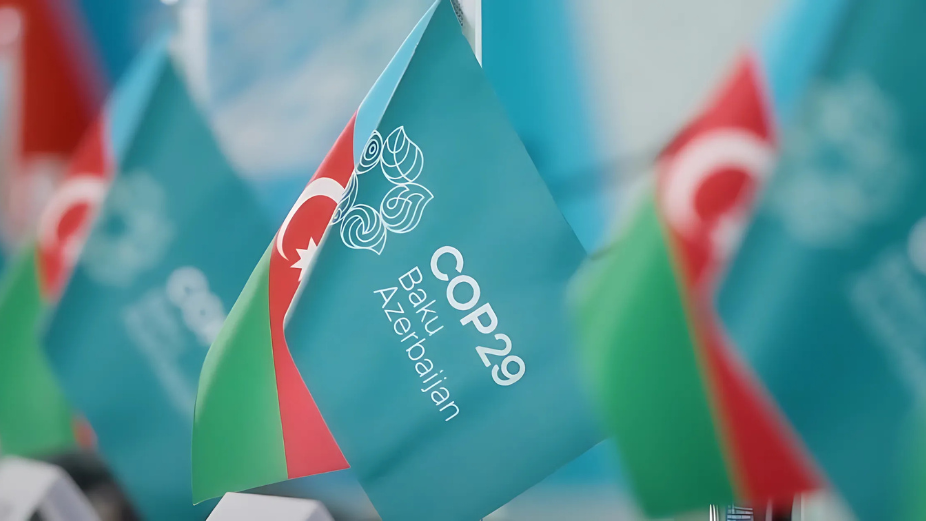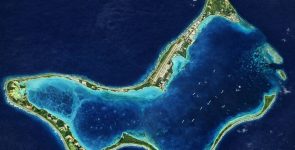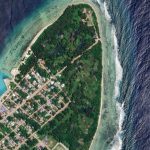
The 29th Session of the Conference of Parties (COP29) of the United Nations Framework Convention on Climate Change (UNFCCC) convened in Baku, Azerbaijan, has become a critical juncture in the global fight against climate change. Among the nations advocating for urgent action, the Maldives emerged as a vocal and influential player.
The Maldives at COP29: A Voice for the Vulnerable
President Muizzu’s address to the COP29 Plenary highlighted the stark reality that the current global financial commitments are insufficient to tackle the escalating climate crisis. “The need is in trillions, not billions,” he asserted, emphasizing that only a substantial increase in climate finance can address the challenges of adaptation, mitigation, and loss and damage faced by vulnerable nations.
Highlighting the unique challenges of SIDS, President Muizzu stated that the Maldives is “a nation of extraordinary fortitude.” However, he pointed out that ambition alone is not enough; without adequate financing, these ambitions remain mere aspirations. He called for an updated climate finance framework that prioritizes both immediate needs and future resilience, reaffirming the Maldives’ dedication to climate action and the preservation of its environment and oceans—a sacred duty integral to the nation’s cultural identity.
A Call for a New Climate Finance Goal
During the High-Level Roundtable on “Enabling Climate Finance – The Make-or-Break Moment for a Sustainable Future,” President Muizzu called for COP29 to set a new climate finance goal. He stressed that the vulnerabilities of SIDS should not be viewed as liabilities but as opportunities for meaningful investment in shared global security.
President Muizzu proposed innovative financial approaches, including linking debt forgiveness to climate resilience milestones. He urged the transformation of the global financial system to support climate resilience and highlighted the critical role of the private sector. By partnering with official creditors to offer favorable terms and extended maturities, private lenders could unlock transformative potential.
“This is a make-or-break moment,” he declared. “Inaction, or even delayed action, is not an option for countries like mine. Let’s not break it; let’s make it—for the future.”
International Collaboration and the Zero Carbon Island Initiative
In a demonstration of international collaboration, President Muizzu participated in the launch of the International Zero Carbon Island initiative, organized by China’s Shandong Province. He praised President Xi Jinping and the Chinese government’s commitment to green and low-carbon development, noting China’s goal of achieving carbon neutrality by 2060 as an inspiring example of leadership.
President Muizzu emphasized that low-carbon development is not just a choice but a necessity in the face of escalating climate impacts. He underscored the urgency of reducing emissions and protecting the environment, stating that the Maldives and other vulnerable nations are determined to be active leaders in driving a sustainable future.
He expressed confidence that the initiative’s forward-thinking, low-carbon policies would provide valuable insights and serve as a model for the Maldives and other island nations striving for sustainability and resilience. He stressed that climate action requires a collective effort and called on COP29 countries to agree on a new climate finance goal.
Transforming Financial Architecture for SIDS
At the Leaders’ Summit of Small Island Developing States on Climate Change, President Muizzu highlighted how climate change erodes years of development gains and called for transformative actions to ensure the financial system meets the urgent needs of SIDS. He made three pivotal calls for action:
1. Unified Global Support: He urged for cohesive support from the United Nations, Multilateral Development Banks (MDBs), international financial institutions, and the private sector.
2. Innovative Financial Solutions: He advocated for linking debt forgiveness to climate resilience milestones and redefining creditworthiness to reward efforts towards sustainability.
3. Establishing a New Climate Finance Goal: He called on COP29 to set a new climate finance goal that reflects the actual needs of vulnerable nations and to conclude discussions on international carbon market mechanisms.
President Muizzu also highlighted the transformational actions being taken by the Maldives in economic development, urban planning, and transitioning to sustainable energy. He emphasized that SIDS have been advocating for climate action for decades and called for global solidarity to transform words and promises into tangible action.
Early Warning Systems: An Investment in Prosperity
Addressing the High-Level Event on “Delivering Early Warnings for All and Addressing Extreme Heat,” President Muizzu highlighted the Maldives’ view of early warning systems as an investment in livelihoods and prosperity. He noted the country’s leadership as the first nation to develop a national strategic roadmap for early warning, reflecting its commitment to the Sendai Framework for Disaster Risk Reduction.
He outlined the Maldives’ recent achievements, including the establishment of a disaster loss database to track climate impacts and the implementation of digital data collection for swift response. The President emphasized the government’s priorities, such as enhancing the Common Alerting Protocol and impact-based forecasting systems, to strengthen resilience against climate threats.
What Can Be Achieved: A Blueprint for a Climate-Resilient Future
The Maldives is not merely calling for action but is also setting an example by outlining a forthcoming 20-year vision to achieve a climate-resilient nation by 2040. This vision includes:
• New Energy Policies: Implementing sustainable energy solutions to reduce reliance on fossil fuels.
• Green Initiatives for Food Security and Housing: Promoting sustainable agriculture and eco-friendly housing developments.
• Economic Diversification: Reducing economic vulnerability by diversifying industries and promoting sustainable tourism.
By taking these steps, the Maldives aims to demonstrate that even nations most vulnerable to climate change can lead the way in implementing practical solutions.
What Is at Stake: The Urgent Need for Global Action
The urgency of the Maldives’ calls to action at COP29 reflects the existential threat that climate change poses to SIDS. Rising sea levels, extreme weather events, and environmental degradation threaten not only the livelihoods but the very existence of these nations.
President Muizzu’s appeals highlight that without significant and immediate financial commitments, the aspirations of vulnerable nations will remain unattainable. The disparity between funds allocated for climate adaptation and other global expenditures illustrates the need to reprioritise financial resources.
“Let’s choose the path that changes lives, not the climate,” President Muizzu urged global leaders. The decisions made at COP29 will have lasting implications, not just for the Maldives but for the global community’s ability to combat climate change effectively.
COP29 in Baku represents a critical opportunity for the international community to respond to the urgent calls for action from nations like the Maldives. By addressing the inadequacies in climate finance, embracing innovative financial solutions, and fostering international collaboration, there is potential to make significant strides toward a sustainable and resilient future.
The Maldives’ proactive approach and leadership serve as both a beacon of hope and a call to action. As President Muizzu aptly stated, “This is a make-or-break moment.” The world must heed this call to ensure that vulnerable nations are not left behind and that collective efforts lead to meaningful and lasting change.












